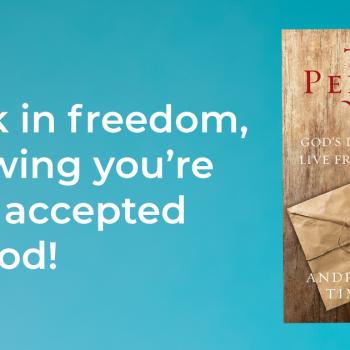People sometimes ask if aspects of my teaching are different from a Reformed view of living under grace. Here below are three key differences.
Difference #1: We Don’t Use the Law to Convict Christians of Sin
We should not use the Law to convict Christians of disobedience. After all, it’s a slippery slope. I mean, should we convict believers of eating pork? Eating shellfish? How about not observing the Sabbath?
If not, then we’re down to nine commands. So we end up cherry-picking from 613 regulations, and we get down to nine in our attempt to convict Christians.
How about we just let the plethora of behavior passages in the many New Testament epistles show us clearly what Jew and Gentile believers should both expect from the Spirit of God within them? That’s more Biblically accurate and true to the new covenant way of grace.
Think about it. Paul never rolled into town teaching the Law as the instrument of conviction for the church.
Now, it is true that the Law is not dead, and that the Law is not done away with, and that the Law still serves as an instrument of conviction for UN-believers. Romans 1-2 explain that, for the Jew, it is the Law, and for the Gentile, it is the conscience. So both Law and conscience can convince the UN-believer that he is dead and in need of new life.
So the Law is not dead. But once we receive new life in Christ, we die *to* the Law, so that we might truly live!
Difference #2: We Aren’t “Simultaneously Saint and Sinner”
It’s true that, on this side of heaven, we saints will always be tempted, always struggle, and always commit sins. As James says, we “stumble in many ways.”
Still, it is more accurate to think of ourselves as saints, not sinners. Each time we are addressed in the New Testament epistles, we are called “saints.” We are saints who sometimes sin, not sinners by nature at the core. If we were still sinners at the core, then our new birth would mean little to nothing.
Note that when Paul once referred to himself as being the “chief of sinners”, he was referencing his former track record in persecuting and killing Christians, not his present life in Christ!
After salvation, Paul became a new creation, a child of God, a saint who sometimes sins, because of his un-renewed mindsets, his ongoing struggle with fleshly thinking, and the temptations launched at him by the power of sin.
Still, his struggle with these did not give him the label “sinner.” His identity was found in Christ, not in his behavior.
It is the same for believers today.
Difference #3: The Moral Law Is Not Our Source or Goal
To some, this may seem like semantics, because either way, we all agree that lying and stealing and adultery, for example, are not of God.
But the moral law (the Ten Commandments) is not meant to be our source or goal in the Christian life. No, knowing Christ is our source, and knowing Christ is our goal as well.
Paul tells the Corinthians that the moral law (the Ten Commandments) is a “ministry that condemns” and a “ministry that kills.” Specifically, he says this of the Ten Commandments (not the ceremonial law) that were “engraved in letters on stone.”
In addition, Romans 7 states that “apart from law, sin is dead.” In context, Paul was specifically referring to “Thou shalt not covet”, which, of course, is one of the Ten Commandments.
In essence, Paul was saying that apart from the Ten Commandments, sin is dead. So why would we want to invite Christians to the (moral) Law as their source or goal, when Christ Jesus himself is supposed to be our source and goal?
Again, this does not at all mean that lying or stealing or adultery are okay with God. Such things are clearly marked as sin throughout the New Testament. That is not in question.
What is indeed in question is: How do we find victory over sin? How do we say “no” to sin?
And the answer is not by making the Law our source or making the Law our goal! No, the answer is in allowing the Spirit of Christ within us to rule in our lives.
This involves active choices of our will, as we in obedience to Christ allow Him to express Himself through us. So we do make active and important choices, but we make these as we fix our eyes on Jesus Christ, not on the Law.















